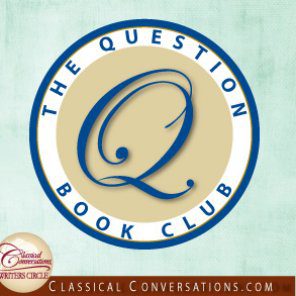Chapters Nine through Eleven – History, Science, & Fine Arts
Who Is Your Hero?
by Cara McLauchlan
“If we do not move our children to discover heroes to imitate, they will invent their own. That is what the cultural icons have become….If however, I want my child to be pushed beyond the limits of his humanity in the service of something good and noble, then I need my child to have genuine heroes, the real deals.”
– Leigh Bortins, The Question (pg. 160)
As a kid, my hero was Wonder Woman. With her lasso of truth, golden crown, and invisible jet, I thought she packed all the qualities of the coolest heroine for an awkward middle school girl.
So when I asked my son who his hero was and he responded, “Captain America,” I understood. In our youth, we look for heroes that do the impossible, the amazing, and the powerful things we could never imagine doing. Obviously, Christ will be our best and greatest reference as a hero, but my son’s Captain America response got me thinking about what sort of heroes I was inspiring him to consider.
Leigh Bortins says in The Question, “Heroes drive us, by their examples, to do what we would not consider it possible to do, to be what we would not consider possible to be, to become what we had not considered it possible to become” (pg. 158).
When I hear the word “hero” I think of people like Mother Teresa and the first responders from 9/11. I think of the Founding Fathers bravely signing their names on the Declaration of Independence. I think of the type of people who risked it all to insure the freedoms in America that we take for granted every day. Especially, I think of our Father, giving His only Son to die for my sins on the cross.
As a homeschooler, I sometimes forget that the learning subjects are not only about rich wisdom—they are also laced with incredible heroes. Starting with the Bible, every subject we touch upon is a chance to discover heroes and their qualities. Even though the heroes of the earth will never have the perfection of Christ—the innovators in the fields of math, science, history, fine arts, literature, and –more—all offer opportunities to discuss greatness.
Leigh continues, “We don’t just want our student to think about history well; we want them to act because of history’s purpose in their lives. To do so, we must encourage them to have heroes. The idea of heroes seems so old-fashioned to some, yet so obvious to others” (pg. 157).
I think the heroes I like best are the ordinary ones who do extraordinary things. When I say extraordinary, I do not mean lifting cars off of babies or manhandling a burglar, while those are also great and noble things. I think of the heroes that are quietly building God’s kingdom in small ways.
I think of Kathy, a woman in my church, who faithfully shows up each Sunday to sign for the deaf in our community. Her worshipful face and beautiful hands bring sermons and songs to life not only for me, but for others who bask in the way words become expressions through signing.
I think of my friend, Chris, who has a heart and passion for orphans and widows in Haiti—how he began his small non-profit from nothing, but an idea and a whispered prayer in his heart. He now builds schools and orphanages by equipping local pastors in Haiti. He is doing powerful work and he is rescuing the lost, one by one, day by day, in the poorest country in the Western hemisphere.
think of my newest friend Susan, a military wife raising three children under the age of four as her husband completes his third tour of duty oversees. Her brave faith is humbling as I watch her walk daily with the Lord as her complete provision.
With that in mind, we get to be heroes, too. Our kids are always watching how we handle tough situations, mistakes, and challenges. It is a daunting and yet awe-inspiring task that we, too, get to be heroes.
Leigh says in The Question, “As parents and instructors, we often teach our children through our own personal histories. Whether formally or informally, we include our own history as something from which they can learn to live, and live well” (pg. 144).
When I read that, I am reminded that homeschooling is not something to carry lightly. I want my family to learn to live well. This is something that I believe is an important work not for me, but for God. In my heart, I believe together we are raising the generation that will change things. We are creating the next generation of heroes that will point to the greatest hero of all, our Father.
The Question Book Club Articles
Chapter One – Dorothy, Doubts, and Dialectic
Chapter Two – I Heart Aristotle
Chapter Three – The Extraordinary FAQs
Chapters Four and Five – Three Big Ideas about the Three Rs
Chapters Six, Seven, and Eight – What’s Your Big Hairy Monster?
Chapters Nine, Ten, and Eleven – Who Is Your Hero?
Conclusion – The Best Question




